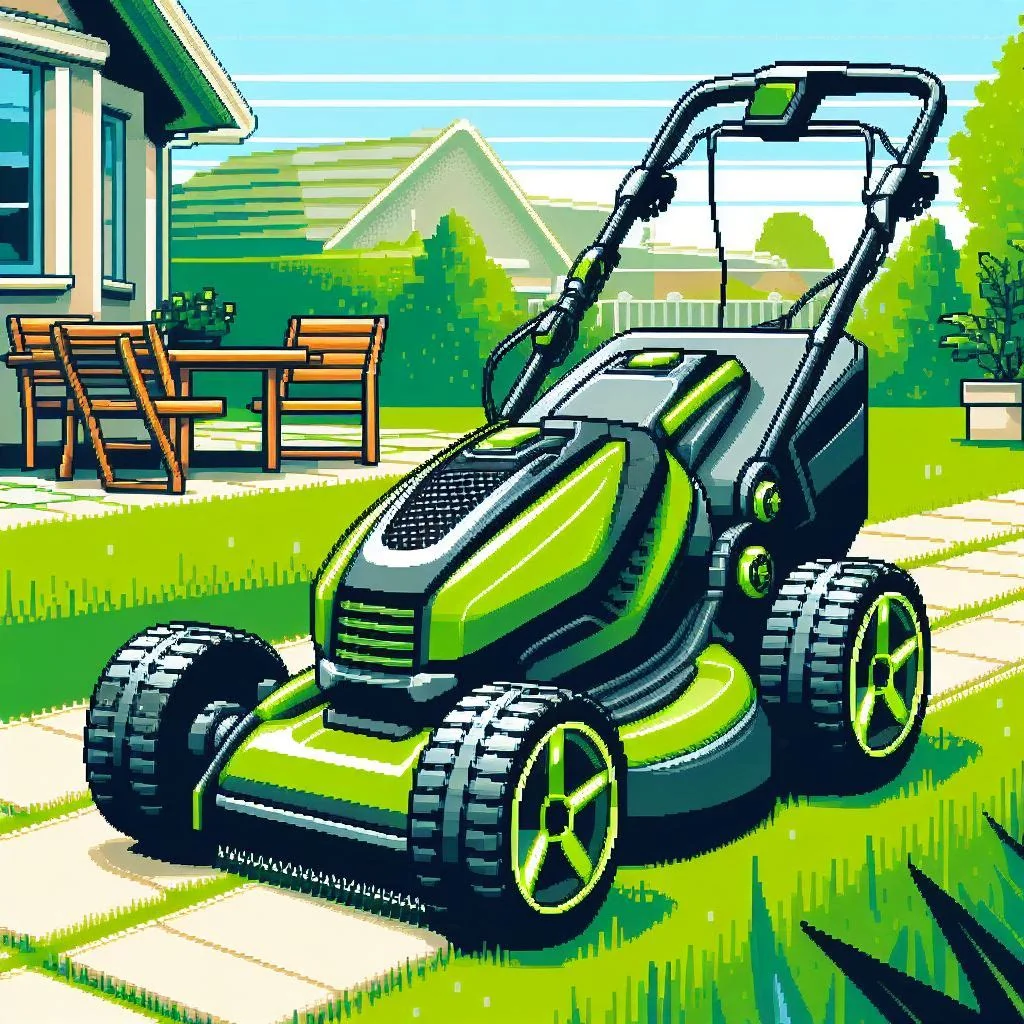A question that I get often from my readers is whether or not a battery lawn mower is ready to replace a gas lawn mower. This question resonates with me since once upon a time I was deciding this for myself – that was in 2016 and at the time I found out that the answer was No. However, 8 years later I can confidently say that now, Yes! Battery lawnmowers are up to par with gas mowers, especially for home users.
Let’s delve into the advantages of using a battery-powered mower over a traditional gas-powered mower:
- Environmental Impact:
- Battery Mowers: Emit zero direct emissions during operation. They contribute to cleaner air and reduce greenhouse gas emissions.
- Gas Mowers: Release harmful pollutants such as carbon monoxide, nitrogen oxides, and volatile organic compounds. These emissions negatively impact air quality and contribute to climate change.
- Noise Level:
- Battery Mowers: Operate quietly, creating minimal noise disturbance for you and your neighbors.
- Gas Mowers: Tend to be significantly louder, which can be bothersome, especially in residential areas.
- Ease of Use:
- Battery Mowers: Start with a simple push of a button—no pull cords or priming required.
- Gas Mowers: Often require multiple attempts to start, involving pull cords and choke adjustments.
- Maintenance:
- Battery Mowers:
- Low maintenance: No oil changes, spark plug replacements, or carburetor adjustments.
- Minimal upkeep: Regular blade sharpening and occasional battery replacement.
- Gas Mowers:
- High maintenance: Frequent oil changes, air filter cleaning, and spark plug checks.
- Carburetor adjustments and fuel stabilizers are necessary.
- Battery Mowers:
- Weight and Maneuverability:
- Battery Mowers: Lightweight and easy to maneuver, making them ideal for smaller yards.
- Gas Mowers: Heavier and bulkier, which can be challenging to handle, especially for older adults or those with physical limitations.
- Fuel Source:
- Battery Mowers: Use rechargeable lithium-ion batteries. Charging is convenient and can be done overnight from your own garage.
- Gas Mowers: Depend on gasoline, which requires trips to the gas station and proper storage.
- Cost Efficiency:
- Battery Mowers:
- The initial cost may be higher, but no ongoing fuel expenses.
- Long-term savings due to reduced maintenance and fuel costs.
- Gas Mowers:
- Lower upfront cost, but ongoing expenses for gasoline, oil, and maintenance.
- Higher lifetime costs due to fuel and maintenance requirements.
- Battery Mowers:
- Cutting Performance:
- Battery Mowers: Provide consistent cutting quality. Blade speed matches that of gas mowers.
- Gas Mowers: Historically known for their power, especially for large lawns. However, modern battery mowers match their performance.
- Safety:
- Battery Mowers: Safer due to no risk of gasoline spills or engine fires.
- Gas Mowers: Gasoline handling poses safety hazards.
- Longevity and Durability:
- Battery Mowers: Improving technology extends battery life. Durability depends on the brand and model.
- Gas Mowers: Durable but require more frequent maintenance to prolong lifespan.
In summary, battery mowers offer a cleaner, quieter, and more user-friendly experience. While gas mowers still have their place, the shift toward battery-powered alternatives aligns with environmental consciousness and ease of use. Consider your lawn size, maintenance preferences, and environmental impact when choosing between the two.
FAQ
How Do You Start a Battery Push Mower?
Unlike gas mowers, battery mowers don’t have a pull-start mechanism. To start a bettery push mower, simply press the power button or engage the safety lever (if applicable). No pulling cords are required!
Do You Have to Keep a Battery Lawn Mower Plugged In?
Battery-powered mowers operate cordlessly, so they don’t need to be plugged in while mowing. However, you’ll need to charge the battery after every 30 to 60 minutes of use, depending on the model
Are Battery Mowers Hard to Push?
Battery mowers are generally lighter than gas mowers, making them easier to push. However, self-propelled electric mowers are even more effortless to maneuver.
How Long Can You Mow With a Battery Mower?
The run time depends on the battery capacity. Some models can mow up to an hour on a single charge. Consider extra batteries for larger lawns.
Is It OK to Leave a Battery Mower Outside?
While battery mowers are more weather-resistant than gas mowers, it’s best to store them indoors or in a covered area to prolong their lifespan.
Is It Safe to Mow Wet Grass With a Battery Mower?
Mowing wet grass is generally not recommended, regardless of the mower type. Wet grass can clog the cutting deck and affect performance. Wait for the lawn to dry before mowing.
